The Shell Game of Corrupted Government Exposed
13 Assassins

Bushido is a Proverbial Double-edged-sword in "13 Assassins"
All great religions, and other strict disciplines enforce a code that provides structure to establish the tradition, which
 will endure the ages. Societies are built on these precepts.
will endure the ages. Societies are built on these precepts.
No society in the history of the world understands the inarguable fact that the rigid code of immutable laws, like Moses’ Ten Commandments handed down by an angered Yahweh on Mount Sinai, better than the ancient Jews and Japanese. Like that covenant with God, divinely etched in the hard stone of that holy desert mountain, there are other societies that are just as intractable in their interpretation of their traditional laws that instill a value system, which provides for their triumph in good over evil, in life over death. Like the Ten Commandments, the Bushido Code was strictly followed by those who ruled - the shoguns with their enforcers, who empowered their rule, and who also loyally followed that strict code - their loyal samurai warriors.
Bushido, the ancient code of the samurai, essentially lent structure to Japan for nearly seven centuries until the war of the Meiji Restoration in 1867. Until the Reformation, the various shoguns' power was absolute, and, consequently, the political tenor of their respective territories that they ruled absolutely during their reign.
The "13 Assassins" is a treatise in celluloid of that responsibility, and what would probably occur if that awesome responsibility was mishandled.
Director Takashi Miike used a screenplay by Daisuke Tengan, who was helped by Kaneo Ikegami, to present in broad violent strokes what one shogun did to rectify the atrocities of another shogun-in-waiting, Lord Naritsugu Matsudaira played by Gorô Inagaki.
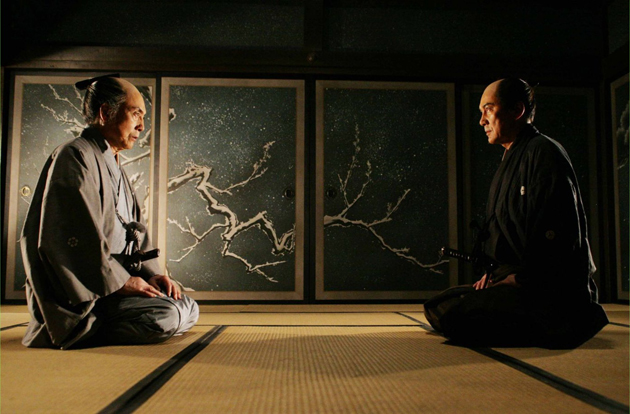
Lord Naritsugu Matsudaira was a man who was drunk with power. The other shoguns, who kept the peace within the ancient empire of Japan knew the only way to stop his rise to the complete absolute power of shogun, with over 200 loyal samurais at his behest, was to kill him.
While murder appears to be an uncivilized remedy, the actions of a man, who made sport of killing the children of his adversaries and at other times, mutilated and raped the wives of others: Murder seemed to me as a fair trade-off. The 13 assassins (most of them Samurai), who were ultimately assembled, and tasked, to complete this fierce, gruesome deed were commanded by Master Samurai Shinzaemon Shimada, played by Kôji Yakusho.
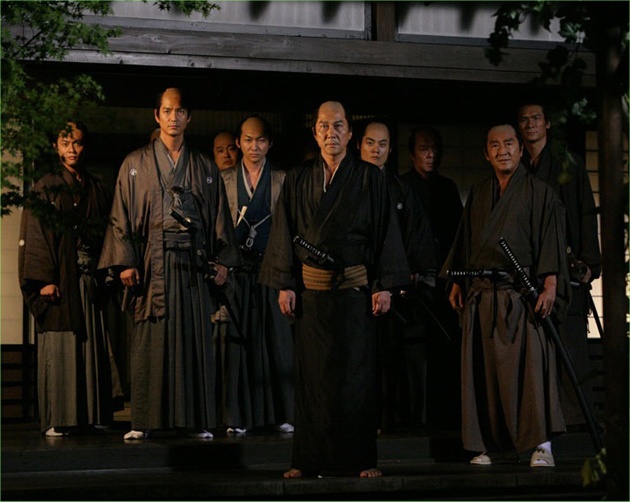
Kôji Yakusho's role as the master samurai was pivotal to this film. His sincere projection of the intense Bushido integrity was paramount in conveying to the audience, not familiar with the Bushido Code, to what lengths he, and the other 12 Samurais would travel to complete their strict duty. The other actors that formed the troupe bent on the total destruction of Lord Naritsugu Matsudaira, and his loyal samurai defenders, were equally convincing, which made the film work.

"13 Assassins" is an apparent homage to Japanese Director Akira Kurosawa's 1954 classic, "Seven Samurai," and the subsequent 1960 American hit, "The Magnificent Seven." Like both films the antagonist is terrible, the protagonist is committed against all odds, and there is a climatic defense-of-the-village scene that is worth the price of admission alone, and in this film, that scene, with the most efficient cleaving devise ever constructed - the samurai sword slicing through the air and bodies - it is excessive, but necessary.
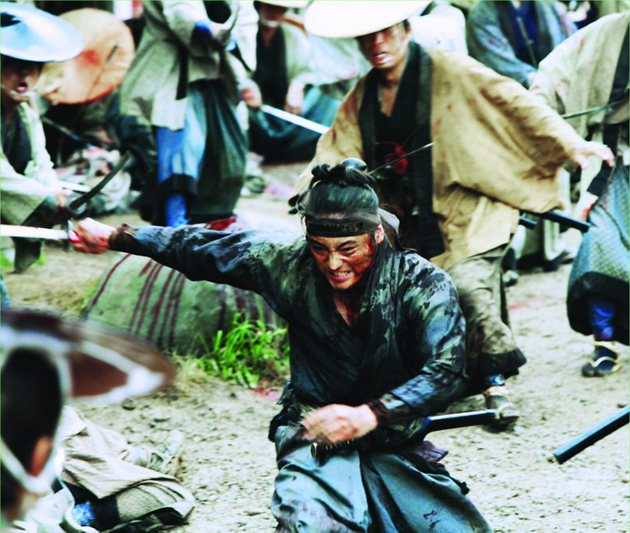 In the defense-of-the-village scene, the fighting was continuous and terrible. The choreographed violence was breath-taking and the cinematography efficient, near perfect in it recording of these magnificent scenes.
In the defense-of-the-village scene, the fighting was continuous and terrible. The choreographed violence was breath-taking and the cinematography efficient, near perfect in it recording of these magnificent scenes.
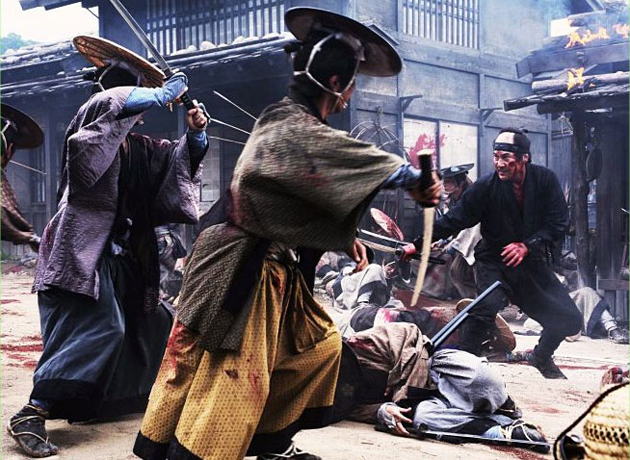
When one considers that the Bushido Code requires that samurai warriors sacrifice their existence to the whim of the shogun, one understands that the code itself was the driving force of this well constructed film on both sides of the cutting blade of that double-edged-sword that is Bushido. Both sides of this mêlée were locked in a death embrace, which would be settled by the last man standing, and while dying in battle, in the Bushido code, is the most honorable of all deaths - it's still death. Some samurai died for the honor of battle, others died to rid the world of an evil man. In either case, it was still death.
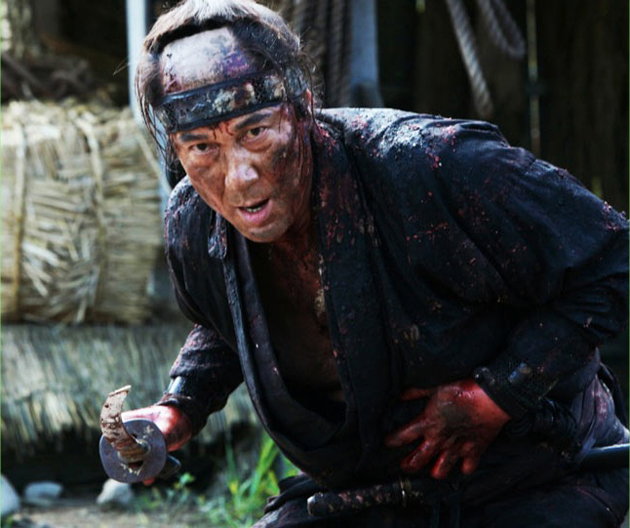
“13 Assassins” is a brutal film in most of its 126 minutes of runtime, and be prepared to use English subtitles fore the film is in Japanese.
Rated R. Released in theaters on May 8, 2011.
| Lipbone Returns for a Second Helping at the Turnage Theater | Film Reviews, Movie Reviews, The Arts | Almost Famous |






















